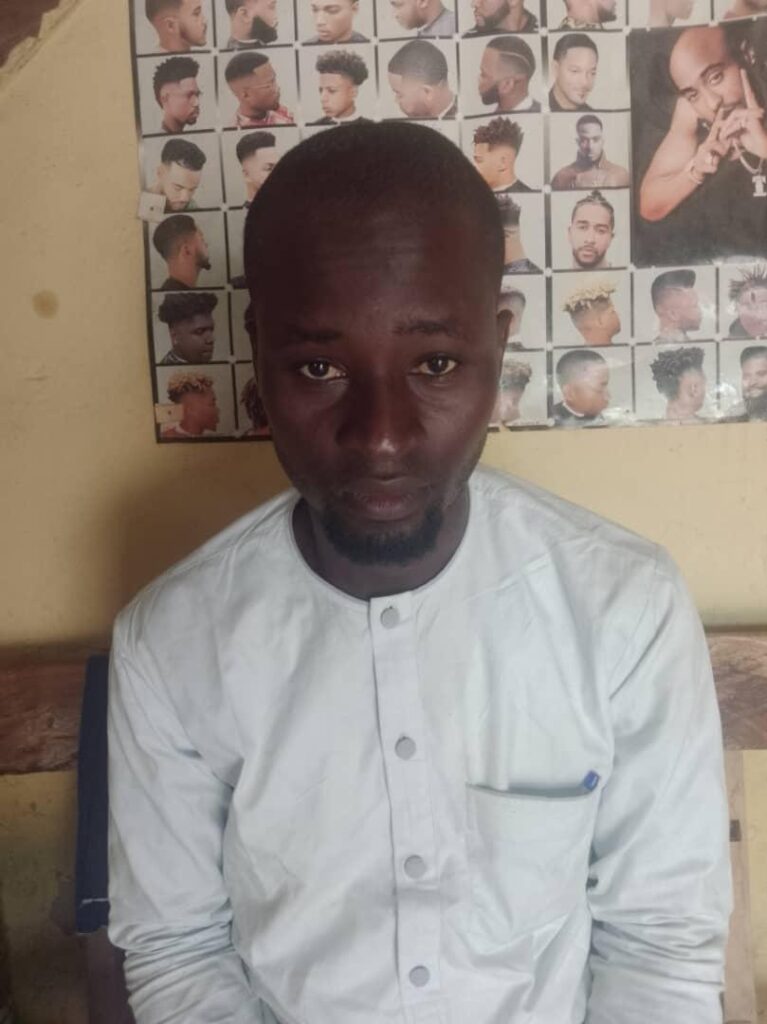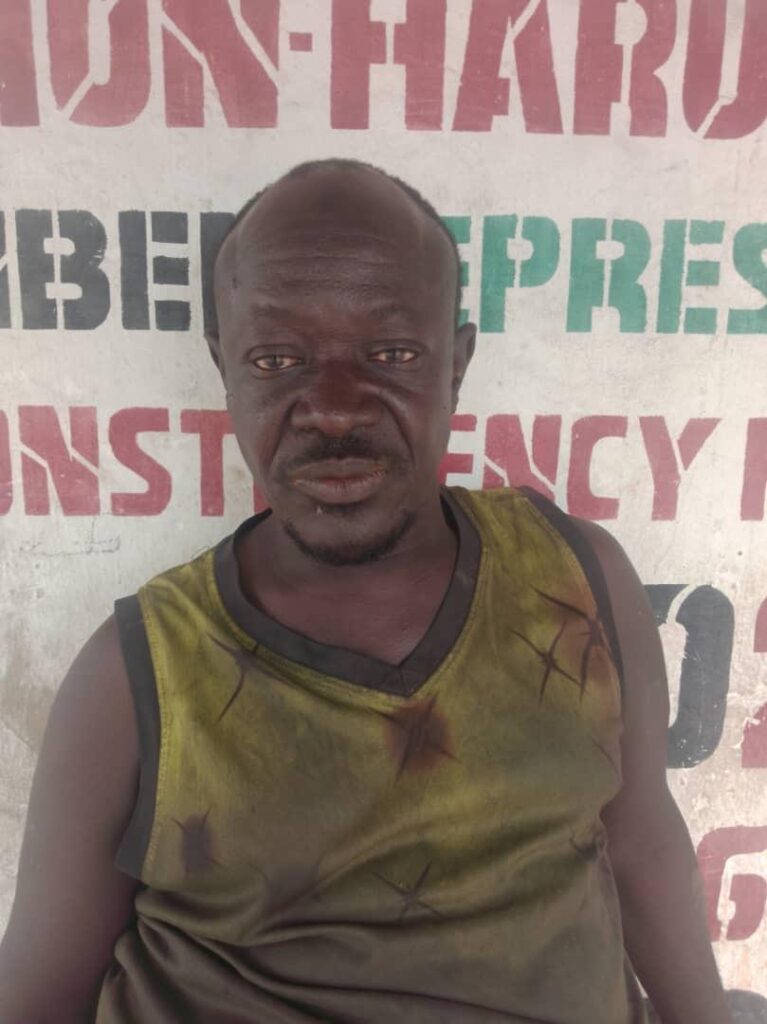Nigeria’s Northeast Communities Still In Darkness Nine Years After Boko Haram Destroyed Electricity Cables
Many communities in Adamawa are battling blackout-induced economic hardship years after the destruction of electricity facilities by Boko Haram insurgents. The darkness in these communities has caused the prices of goods and services to skyrocket, making life difficult for residents of the state.

Aside from the loss of lives, destruction of properties, and displacement of thousands of people, the devastation caused by Boko Haram insurgents in Nigeria’s North East includes massive disruptions to economic activities, making it difficult for many communities to sustain their livelihoods.
For many residents of the communities in Michika and Madagali areas of Adamawa state, the economic hardship forced on them as a result of the destruction of their electricity wires and cables has thrown hundreds of traders into bankruptcy and many people have been completely stripped of their livelihoods.
“We are really experiencing the effect of Boko Haram insurgency in Michika and it’s fast becoming unbearable,” said Emmanuel Kwaghe, a senior staff member of Mundra Hotel and Lodge. “Our hotel depends on power supply to make a profit so the lack of electricity has crippled our operations.”

Background
Between 2014 and 2015, Boko Haram overran towns in Michika, Madagali, and other border towns between Adamawa and Borno state, killing scores and injuring others. The repeated attacks on innocent lives would later turn a state with a lot of tourist attractions and robust cultural assets into a forbidden destination.
In September 2014 precisely, the electricity supply in Michika and Madagali was disrupted when Boko Haram fighters used improvised explosives to bring down high-tension electricity installations connecting different local government areas to the national grid. The goal, HumAngle understands, was to make the communities economically handicapped and frustrate helpless residents.
Nine years after the destruction, many towns in Adamawa have remained in perpetual darkness, with businesses struggling to survive. Some business owners have also become jobless because they could not sustain running their businesses using generators.

Meanwhile, the removal of fuel subsidies announced by President Bola Tinubu during his inauguration in May is having a heavy knock on many families in the state. Even those who are not directly making use of petrol are in pain because the policy has distorted the whole economy by artificially influencing markets and changing the conditions under which markets operate.
Dying business
“We started our hotel business in 2012 and we were trading competitively. Everything was smooth for us with a lot of customers patronising us. Things, however, went bad after the repeated attacks on Michika by Boko Haram insurgents in 2014,” Kwaghe explained.
“When normalcy returned relatively at the tail end of 2015, we renovated the hotel and reopened, expecting that business would bounce back but that never happened. The everyday darkness continues to hinder the economic prosperity of our communities.”
He told HumAngle that despite having many empty rooms, the few people who patronise them need to be satisfied so they have to put on their generating plants amid the high cost of fuel.
“Before the massive attacks in 2014, we were spending less than ₦5,000 on diesel daily because there was electricity. Today, we spend an average of ₦56,000 on fueling the generator per day. The skyrocketing price of fuel has made the hotel business unprofitable especially now we do not have as many customers as we used to. We only rely on Non-Governmental Organisation (NGO) and Humanitarian workers who visit the town once in a while.”
Kwaghe added many companies like his hotel have had to sack people as a result of heavy reliance on high fuel consumption.
The struggle
On his part, Samaila Bazza, a pharmacist in Michika said that the blackout in his area has put many lives at risk because most medicine stores are unable to stock specific medications that require refrigeration.

“It’s not easy running a pharmacy without electricity. I can’t take stock of specific medications because they have to be kept in the refrigerator. Some of these medications are for patients with diabetes. Now, what would happen when they have complications and need a quick response? They face pain and regret and possibly lose their lives. With electricity, this can’t happen because they will have access to necessary medications,” Bazza explained.
He also spoke on how his children have been denied basic knowledge for their age.
“I have a 5-year-old daughter who doesn’t know what a functioning television looks like. She can’t even sing the common nursery rhymes because there’s no television to watch and the schools here don’t use generators.
“There are young adults who lack access to the latest news updates, television shows, educational content and so on.”
One of the prominent barbers in Shuwa Madagali, a town in Madagali local government area, Timothy James, says it has been a double-edged hardship for him running a salon with a generator and the high cost of petrol since Boko Haram attacked the community in 2014.
“We live in a country where the government hardly provides any social services to its people except roads and electricity. Before 2014, my salon was thriving because we were benefiting from a consistent electricity supply. By the time I returned in 2016, I found an entirely different landscape.

“No electricity to work and the cost of fuel for our generators has become unbearable. Even when we try to increase the fare for haircuts, we hardly make a profit.”
Though James usually explains the increase in the price of haircuts to his customers before attending to them, many fail to comprehend the situation and they often express their dissatisfaction because “we are all struggling to survive.”
“I used to charge ₦100 naira per person before the insurgency, this was because I steadily used electricity to work. After the insurgency, I increased the price to ₦150 because we started using 24-hour fuel due to the destruction of electricity facilities by the terrorists. With the recent increase in the price of fuel, I can no longer sustain the business and customers now prefer to use the local method (razor blades) to cut and shave their hair. I am just operating at a loss.”
Like James, Delma Tanko, a mechanic whose workshop is at Gulak, another town located in Madagali, expressed concerns about how the lack of electricity has made his job more difficult for him and his workers.
“The perpetual darkness we find ourselves in has limited me to manual repairs of vehicles. I am unable to perform electrical work due to the lack of electricity and the high cost of fuel. I now refer some of the jobs I can ordinarily fix at my workstation to mechanics in areas with access to electricity for proper repairs and it’s really affecting my take home at the end of the day,” Tanko told HumAngle.

Though a glimmer of hope emerged in July 2020 after Governor Ahmadu Umaru Fintiri commissioned the Michika/Madagali electricity substation and electricity was restored, this respite lasted for just a few months, as the electricity was cut off after Boko Haram targeted the electricity towers in Damboa.
“With the perpetual darkness in our communities, it appears that there’s no near end to our hardship.”
Milcah Gaman is a 2023 HumAngle Accountability Fellow.
Support Our Journalism
There are millions of ordinary people affected by conflict in Africa whose stories are missing in the mainstream media. HumAngle is determined to tell those challenging and under-reported stories, hoping that the people impacted by these conflicts will find the safety and security they deserve.
To ensure that we continue to provide public service coverage, we have a small favour to ask you. We want you to be part of our journalistic endeavour by contributing a token to us.
Your donation will further promote a robust, free, and independent media.
Donate HereStay Closer To The Stories That Matter




